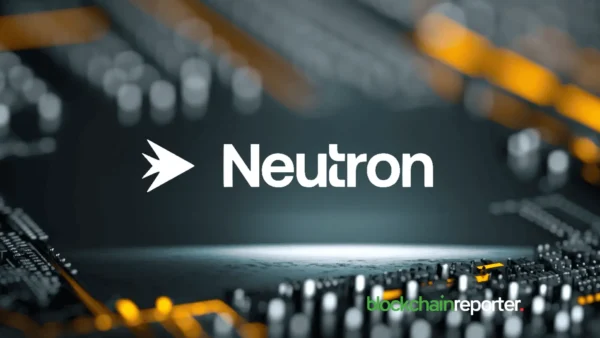
- 1. What are Centralized Exchanges (CEXs)?
- 2. Advantages of CEX
- 3. Disadvantages of CEX
- 4. What are Decentralized Exchanges (DEXs)?
- 5. Advantages of a DEX
- 6. Disadvantages of a DEX
- 7. CEX vs. DEX — What are the differences?
- 8. Why the Future of Crypto Belongs to DEXs
- 9. The Best DEX: Biswap
- 10. Final Thoughts
Cryptocurrency exchanges vital services that any cryptocurrency trader or investor should utilize on a consistent basis in order to purchase, trade, or even cash out their cryptocurrencies. In a nutshell, they make it easier to buy cryptocurrencies with the currency of your country of residence or to trade one cryptocurrency for another.
In addition, there are two primary types of cryptocurrency exchanges that every trader should be aware of. These include centralized exchanges (CEXs) and decentralized exchanges (DEXs). In this comprehensive article, we will examine the difference between CEX and DEX and discover why the future of cryptocurrency belongs to DEXs.
What are Centralized Exchanges (CEXs)?
Let’s investigate the CEX vs DEX discussion by analyzing each exchange type separately. CEXs resemble typical stock exchanges and were the first trading platform for crypto traders and investors. As the names imply, the crypto exchange is dependent on a central authority or a centralized organization. Coinbase, Binance, Kraken, and Gemini are a few of the most popular centralized exchanges in this industry.
Typically, a centralized exchange relies on order books to function. The order book maintains information on each trader’s buy and sell orders, together with the desired buy and sell price and the quantity of relevant cryptocurrency. Matching buy and sell orders are linked in order to complete the deal.
Advantages of CEX
The user interfaces are intuitive for beginners, and the methodologies may be quickly assimilated. Accessibility to the various crypto trading platforms is simple and uncomplicated, with a high level of overall functionality and a number of trading options.
The cryptocurrency specialists feel that CEX’s stronger cash flow is a result of its high trading volume. The trades can easily and expeditiously fulfill their payment commitments. The frenzied engagement on centralized trading platforms ensures a large number of buyers and sellers, which facilitates the market-friendly transaction.
CEX is a solid organization supported by a coordinated and independent infrastructure. This permits quick transactions in real-time. Therefore, in order to develop tactical competitive advantages, they are algorithmically able to handle several orders per second. As a result, market players can make prompt judgments and react rapidly to changing market conditions.
Disadvantages of CEX
People store their digital currency on the exchange. It is essential that the user has no authority over integrated wallets, as they are system components. Due to the fact that the exchange possesses private keys, there is a risk of total loss if it succumbs to flaws. However, such occurrences are infrequent, and billions of dollars have been lost in the past.
Control over centralized transactions is held by authorities, external party operators, and legal teams, which is an arguable disadvantage. In addition, suppliers are required to collect extensive client information to prevent financial fraud. This system contradicts the fundamental premise of cryptocurrencies.
What are Decentralized Exchanges (DEXs)?
DEXs are a sort of cryptocurrency trading platform that has evolved to offer an alternative, third-party-free method of exchanging cryptocurrencies. In a nutshell, instead of relying on centralized authority, decentralized exchanges execute trades using smart contracts.
Biswap is currently one of the most prominent decentralized exchanges. It is also important to note that not all DEXs are identical. Others are developed as Automated Market Maker (AMM) systems or as DEX aggregators and utilize the order book technique.
Advantages of a DEX
When dealings are conducted through a decentralized exchange, governmental regulations, prohibitions, and the monitoring of systems are absent. Participants participate in business transactions with one another on an individual basis, bypassing any third parties like brokers or middlemen.
Every customer has complete authority over their own private keys and, by extension, their cryptocurrency holdings. Trading on a DEX platform rather than a centralized exchange will always have the benefit of providing users with more privacy. There is no identification process, no know-your-customer (KYC) check, and no storing of personal information on servers located in other countries.
Disadvantages of a DEX
Decentralized exchanges are often much more sluggish than centralized exchanges. This is due to the fact that miners must validate every transaction, which varies from DEX to DEX. As a consequence, decentralized exchanges are unsuited as trading platforms when rapid responses to shifting market conditions are essential.
One more disadvantage is that only a handful of advanced DEXs, such as Biswap, support buying cryptocurrencies using fiat currency; the vast majority of DEXs do not. In addition, there are few trading tools available. The vast majority of DEXs lack support for limit orders, stop losses, advanced charting, etc. Some creative DEXs, such as Biswap, have begun to provide advanced features for experienced traders, but other platforms have a long way to go.
CEX vs. DEX — What are the differences?
Centralized exchanges are cryptocurrency trading platforms that are managed by a single entity and typically demand that you fund your account by making deposits into the firm’s bank account or wallet. On the other hand, decentralized exchanges are operated directly on a blockchain like Ethereum or BSC, allowing users to trade cryptocurrencies without the need for a mediator. The following are the primary differences between a CEX and a DEX:
- CEXs are closed source and privately audited, whereas DEXs are predominantly open source and externally audited. For instance, Certik audits Biswap.
- CEXs hold custody of your digital currencies, whereas DEXs permit you to retain custody at all times.
- CEXs may exploit your digital currencies on their platform to increase their own profits. DEXs cannot, as they do not store your tokens.
- CEXs are often less expensive than DEXs due to their fewer fees or glitches and smaller spreads.
- The speed of transactions on CEXs is superior to that of DEXs, which are only as quick as the blockchain they are based on.
- CEXs offer more complex trading tools relative to DEXs’ fundamental trading features.
- Currently, the government regulates CEXs significantly more than DEXs.
- CEXs are more susceptible to security breaches and hackers, whereas DEXs are regarded as more secure.
- CEXs offer greater liquidity than DEXs since they have more customers and a greater selection of digital currencies available for trading.
Why the Future of Crypto Belongs to DEXs
There has been a significant movement toward self-custody and DeFi as a result of the widespread failures of centralized exchanges and custodial companies in the year 2022. People are shifting their crypto holdings from centralized exchanges to their own wallets so they can use them in decentralized finance and protect themselves from the growing misuse of confidence by centralized entities.
Admittedly, decentralization and self-custody are two of the most important reasons why the cryptocurrency market even exists at all. And since the vast majority of DeFi operations take place on DEXs, we should anticipate a growth in the amount of traffic and utilization of these standards in 2023 and beyond.
By using a DEX, you can ensure that you never lose complete control or ownership of your cryptocurrency holdings. Additionally, some DEXs, such as Biswap, provide you rewards for trading on their platform, whereas CEXs do not.
The Best DEX: Biswap
Biswap is one of our favorite DEXs of all time. It is the second-largest DEX on BSC and has some of the lowest fees, the most advanced trading features, various options for rewarding and passive income, and so on. For instance, this post has been submitted to the Biswap Space Agents Program (SAP), which offers participants the opportunity to earn a monthly stipend of up to $2,500 for writing content related to the project.
Biswap is a cutting-edge DEX that now enables users to buy cryptocurrencies with fiat currency using their bank cards, in addition to providing advanced trading options. They can be used in place of a CEX if necessary. In addition, you might receive a reimbursement of up to half of your trading fees, a commission of up to twenty percent for referrals, and much more. You may learn more about the initiative by following it on the social media channels it maintains.
Final Thoughts
Crypto exchanges provide crucial services that are utilized on a daily basis by every crypto trader and investor. As a result of this, it is essential for you to have an understanding of the distinctions that exist between the two most common types of cryptocurrency exchanges now available.
As a result of the dramatic increase in demand for DeFi, DEXs have launched a movement toward decentralized trades. This category of trading venue does not have a central controlling entity as its operator. The advantage is that users can begin trading immediately without first having to sign in, and they will always have access to their confidential credentials.
This article underlined the reasons why you should pay greater attention to DEXs in 2023 and beyond, particularly as an increasing number of people lose trust in centralized corporations and begin to view DeFi as a potentially superior alternative. We also recommended Biswap as one of the most advanced DEXs available today.
Frequently Asked Questions
What is the difference between a CEX and a DEX?
A CEX (centralized exchange) is operated by a central authority and manages your funds and trades through internal systems. A DEX (decentralized exchange) runs on blockchain protocols and allows users to trade directly from their wallets using smart contracts.
Which is safer, CEX or DEX?
DEXs are generally considered safer because they don’t hold your funds or private keys. You maintain full control over your crypto. CEXs, while user-friendly, are more vulnerable to hacks and require users to trust third parties.
Why are people shifting from CEX to DEX?
Events like exchange collapses and misuse of user funds have pushed many toward self-custody and DeFi platforms. DEXs align with crypto’s core principle of decentralization and offer users more control and privacy.
Are DEXs harder to use than CEXs?
DEXs can be less beginner-friendly and may lack some of the advanced trading features and fiat on-ramps offered by CEXs. However, some DEXs like Biswap are closing this gap with user-friendly interfaces, card support, and advanced tools.
Is the future of crypto with DEXs?
Yes, the trend is moving toward DEXs due to rising demand for privacy, decentralization, and ownership. As DEXs evolve to offer more features and better accessibility, they are poised to become the standard for secure, transparent trading.








